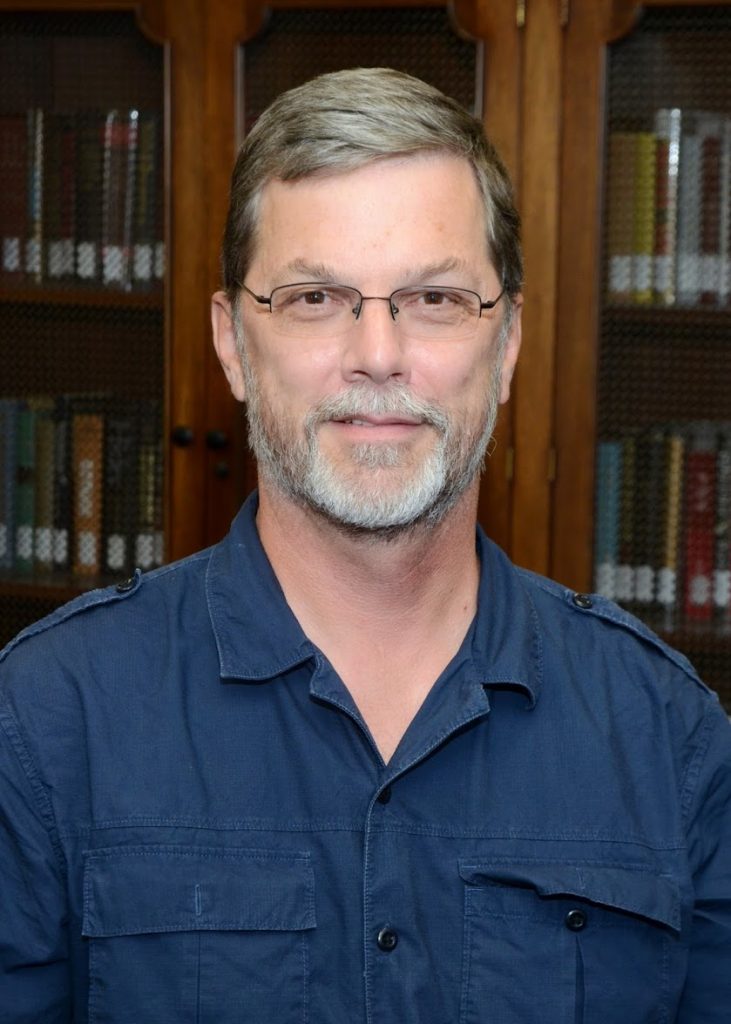Teaching Issues in the News, Pointing Students Back to Founding Principles
December 24, 2020

Ray Tyler, a graduate of Ashbrook’s Master of American History and Government (MAHG) degree program, teaches AP US history, honors US history, and a government course for seniors at York Preparatory Academy in Rock Hill, SC. This charter school offers a rigorous learning environment focused on critical thinking. Tyler uses a teaching approach modeled in Ashbrook’s Masters program. He emphasizes primary documents—the letters, speeches, diaries and other writings of past Americans. Rarely lecturing, except when offering a quick power-point overview of an historical moment, he asks students to analyze and discuss what earlier Americans said and wrote as they grappled with the challenges of self-government.
In February 2016, when Supreme Court Justice Anton Scalia suddenly died, Tyler decided to seize the “teachable moment.” He had recently finished an online course for the MAHG degree on the First Amendment. The professor, Jason Jividen—who Tyler called “superb”—had guided teachers through a thick collection of Supreme Court opinions on free speech. Tyler pulled out one for his students to study: an opinion Scalia wrote in 1998, involving a very offensive action on the part of a teenager.
The teenager had put a KKK-style cross on the front lawn of a black family and set it alight. He was then convicted of both trespassing and making “hate speech.” Scalia’s opinion struck down the hate speech conviction—making Tyler’s students incredulous and uncomfortable. But as they read through the opinion together, they deciphered its logic and its implications for other First Amendment questions.
A day later, a visitor to the class found Tyler’s students still lively with reactions to the case. As they posed questions of Tyler, he reeled off the names of related cases, giving brief summaries of the precedents they’d set. This led to a discussion of the difference between actual speech and symbolic gestures, and between speech in a public school (a government-run facility) and speech made in the ordinary street.

Tyler did not define the meaning of the First Amendment. Instead, he pointed to the shifting history of its interpretation by the Supreme Court. At one point, however, he predicted the likely subject of the next First Amendment case: whether colleges may prohibit “hate speech” on their campuses. He prefaced his remark with a caveat: “This is just a Ray Tyler opinion, not an authoritative statement on this issue.” One of the students interjected, “Oh, I love Ray Tyler opinions!” Clearly Tyler had earned from his students the respect due an authority. Yet unlike those teachers who lecture, he’d earned students’ trust by encouraging them to ask questions and venture their own opinions.
Tyler appreciates the Ashbrook seminar style, which models the primary text-based discussion he uses in his own classroom. He is grateful for the knowledge he’s gained on Constitutional questions—as well as the wealth of primary resources the program introduced him to. Ashbrook programs, Tyler said, allow him to teach to the issues that arise in the daily news, while relating each conversation about these events to the principles expressed in America’s founding documents.

